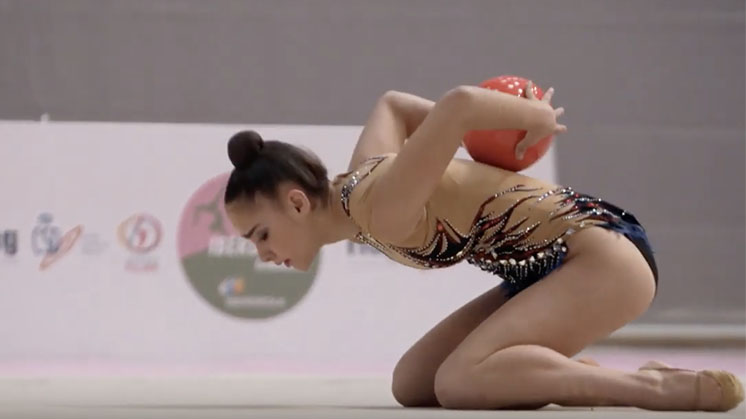Alejandra Quereda, spanish national individual rhythmic gymnastic coach
"There's no need to give up on one dream to achieve another one: it's hard, but it's not impossible"
Sport Women Gender equality Interviews
May 2019. Reading time: 2 minutes
Spanish national individual rhythmic gymnastics coach, Alejandra Quereda, combines her two big passions: sport and higher education. In her day to day, Olympic medals and from two world championships share space with medical books.
Alejandra Quereda, gymnast and national head coach, devotes her life to her two passions: sport and studying medicine.
Hear Alejandra Quereda's story
Alejandra Quereda, Spanish national individual rhythmic gymnastics coach: "The hardest part is the daily grind. Getting up at eight in the morning, your whole body hurting, coming out of training at nine o'clock at night and then you still need to have dinner, shower and begin studying after eight hours of training."
"There's no need to give up on one dream to achieve another one. It's hard, but it's not impossible. Sometimes people ask me which was more difficult: coming second in the Olympics or getting my medicine degree? It sounds crazy, but for me, it was more difficult to get my degree."
"I often thought about quitting my degree. Injuries are a difficult part of being an athlete and I've shed tears about it, but I think I've shed more tears because of the powerlessness of knowing I didn't have enough time to study for an exam."
"Eventually, I had to give up my social life because I had to spend the little free time I had studying. It was impossible to juggle everything. My mum would say: 'I don't know if you'll end up using them, but your notes are definitely well-travelled', because they came with me to every competition."
"In the last few months of my degree, I could see myself working in scrubs more than I could see myself continuing with gymnastics."
"When I came back from the 2016 Rio Olympic Games, I had an operation, and I knew, from what they told me, that the extent of the injury I had there would never allow me to compete at the highest level again. Sometimes, it's better to quit while you're ahead, while you're at the top of your game."
"When I decided to accept the position of national head coach I knew that medicine would have to take a back seat. I didn't expect it to happen, but I thought, 'opportunity only knocks once', so I decided to take up this new challenge. We'll see what the future holds."
"In the future, when I am no longer head coach, I'd like to be a doctor, which is something I love and which have I put so much time into."





